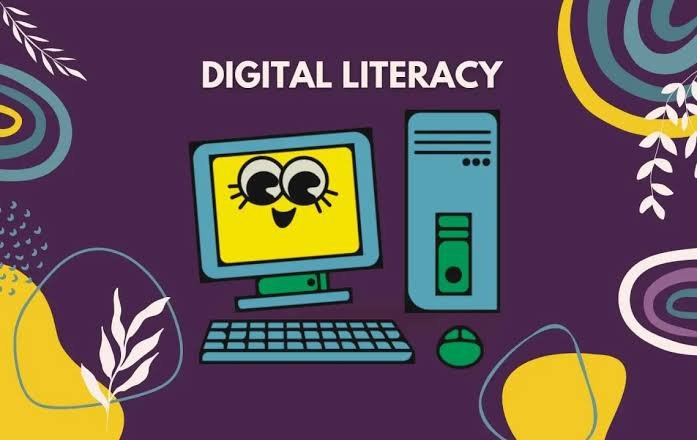The Importance of Digital Literacy in the 21st Century: Navigating the Modern World
Introduction
In today’s fast-paced world, digital literacy is no longer a luxury but a necessity. As technology continues to permeate every aspect of our lives—from education and work to healthcare and communication—understanding and navigating digital tools and platforms has become crucial. In this article, we will explore the importance of digital literacy, its benefits, and how it equips individuals to thrive in the 21st century.
What is Digital Literacy?
Digital literacy refers to the ability to find, evaluate, create, and communicate information using digital technologies. It encompasses a wide range of skills, from basic computer use to understanding complex digital tools and software. More than just technical skills, digital literacy includes critical thinking and the ethical use of information online.
Why Digital Literacy Matters
1. Workplace Competence and Career Growth
In nearly every industry, digital skills are essential. Many companies now require employees to be proficient in digital tools like Microsoft Office, Google Workspace, project management software, and even social media platforms. According to research by LinkedIn, digital skills are among the top sought-after skills by employers in 2024. Individuals with high digital literacy can adapt to new technologies quickly, making them more attractive candidates for various roles.
2. Empowering Education and Lifelong Learning
The internet has revolutionized how we learn. Digital literacy enables students to access online courses, research materials, and educational platforms, often for free or at a low cost. With digital skills, learners can gain knowledge outside of traditional educational institutions and pursue lifelong learning, thus expanding their opportunities.
3. Enhanced Communication and Collaboration
From email to instant messaging and video conferencing, digital communication tools make it easier to connect with others globally. Digital literacy helps people use these tools effectively, fostering teamwork and communication across borders and time zones. Whether for remote work or social interaction, digital competence is essential for meaningful, efficient communication.
4. Access to Essential Services and Information
Many essential services, such as banking, healthcare, and government services, are now accessible online. Digital literacy allows people to utilize these services conveniently and securely. For instance, many people rely on telemedicine for healthcare and online banking for managing finances. Without digital literacy, individuals risk being left out of these convenient and sometimes critical services.
5. Media Literacy and Recognizing Misinformation
In an age of abundant information, being able to distinguish between credible sources and misinformation is vital. Digital literacy helps individuals critically assess the reliability of online information, an especially important skill given the rise of “fake news” and misinformation on social media. Media literacy, a subset of digital literacy, empowers users to make informed decisions and fosters a more informed, less misled society.
6. Security Awareness and Digital Privacy
Digital literacy includes understanding online security and privacy practices, which are essential in today’s connected world. Phishing scams, data breaches, and privacy risks are common online threats. Digital literacy helps individuals recognize risks, use secure practices, and protect their personal information. This awareness minimizes the risk of identity theft and other cybercrimes.
7. Promoting Social Change and Civic Engagement
Digital literacy gives people a voice on social media platforms, blogs, and other online spaces, where they can engage in social and political discussions, advocate for change, and influence public opinion. From environmental activism to social justice movements, digital platforms empower individuals to make their voices heard and participate in civic engagement.
How to Cultivate Digital Literacy
1. Access to Technology and Education
Digital literacy begins with access to technology and the internet. Schools, libraries, and community centers can provide resources to help individuals develop basic digital skills. Many online resources, such as Coursera, edX, and YouTube, offer free courses in digital literacy.
2. Practical, Hands-on Learning
The best way to develop digital literacy is through hands-on experience. Practice using different types of software, learn about digital security settings, and experiment with new digital tools. Even simple activities like using a smartphone or browsing the internet can build foundational skills.
3. Understanding Digital Ethics and Etiquette
As part of digital literacy, it’s essential to understand digital ethics. Practicing respectful online communication, understanding copyright, and using sources responsibly are all part of digital etiquette.
4. Staying Updated with Technology
Technology is constantly evolving, so staying informed about new tools and updates is crucial. Subscribing to tech news websites or following tech influencers can help individuals keep up with the latest trends and advancements.
Challenges to Digital Literacy
Despite its importance, achieving digital literacy remains a challenge for some due to factors like:
Digital Divide: Access to technology and the internet is still limited in certain regions and communities.
Generational Gap: Older generations may find it challenging to adapt to new digital tools compared to younger people.
Cost of Education: While many resources are free, some advanced digital skills training can be costly.
Addressing these challenges requires a collective effort, including investment in infrastructure, affordable education, and accessible technology.
Conclusion: Digital Literacy is Essential in the 21st Century
Digital literacy is no longer optional—it’s a necessity for personal and professional success in the 21st century. It empowers individuals to communicate, learn, and access essential services and enables informed participation in society. Investing in digital literacy, both on an individual and societal level, will ensure that people are equipped to thrive in an increasingly digital world.
Call-to-Action:
Are you looking to improve your digital literacy? Explore free online courses, practice with new tools, and keep learning! Remember, staying digitally literate is an ongoing journey that can open doors to countless opportunities.




